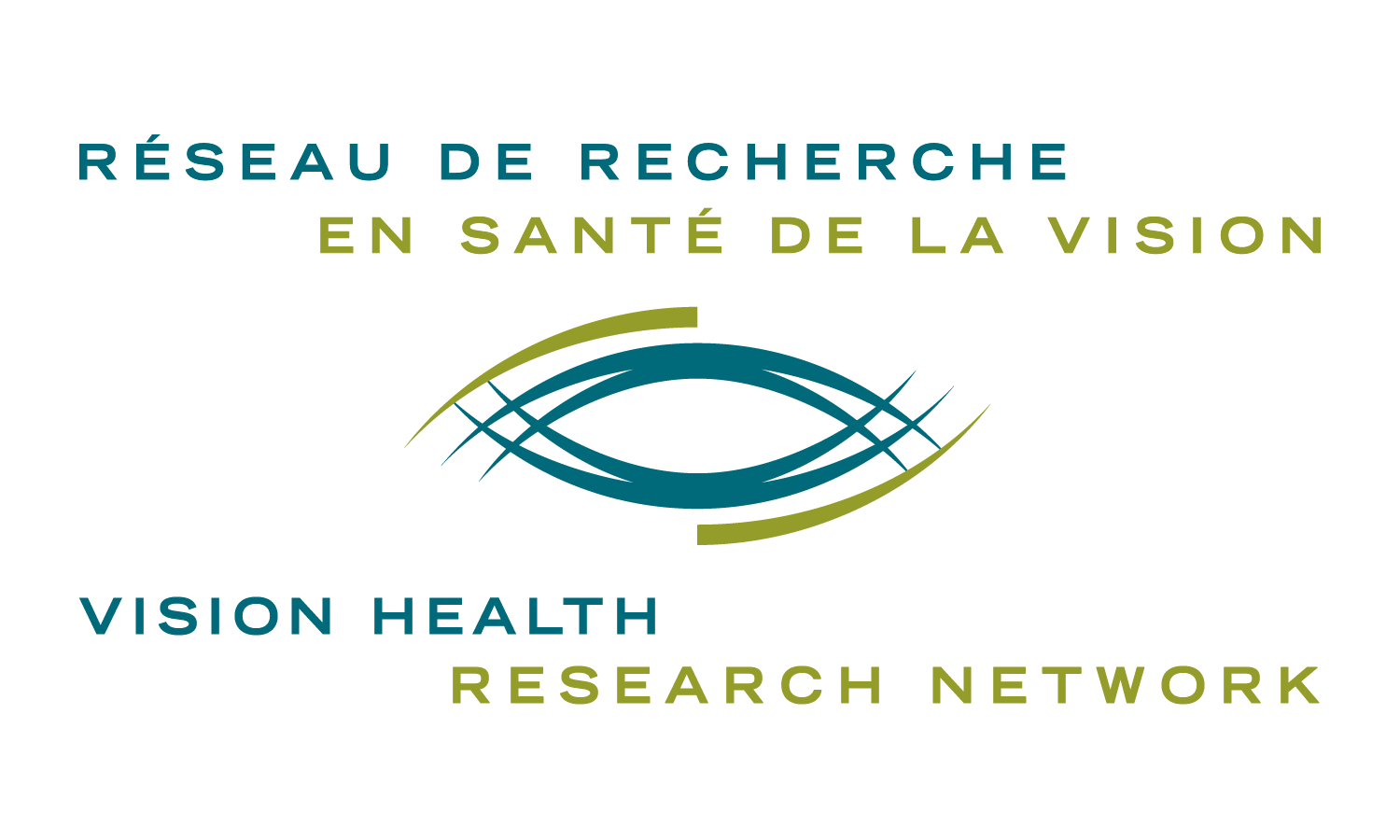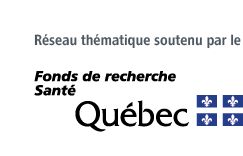Laureates of the 2014-2015 Vision network publication award
Gaëlle Mawambo
PhD candidate, Université de Montréal
Laboratory: Dr Przemyslaw (Mike) Sapieha
Born in Douala in Cameroon, I immigrated to Canada in 2008 where I did my Bachelor’s degree in Biochemistry at the University of Montreal. During these studies, I did two research internships in Dr Christian Baron’s laboratory where I studied the biomolecular mechanisms underlying the biosynthesis of selenocysteine. After graduating with a Bachelor’s in Biochemistry, I joined Dr. Przemyslaw (Mike) Sapieha’s research team to pursue my graduate studies in Biochemistry. I have contributed to the publication of two founding projects of the laboratory of Dr. Przemyslaw (Mike) Sapieha. The first study (Binet F, Mawambo G, et. al., Cell Metabolism, 2013) demonstrated the ability of axonal guidance molecule netrin-1 to induce the secretion of the pro-angiogenic factor VEGF (Vascular Endothelial Growth Factor) by brain macrophages or microglia, thus leading to a restorative revascularization of ischemic retina in the context of proliferative retinopathy, the main cause of blindness in industrialized countries. Still in the pathological context, we recently published in a second study (Dejda A & Mawambo G, et. al., The Journal of Clinical Investigation, 2014) on the impact of the receptor Neuropilin-1 (NRP1). In this study where I am co-first author, we demonstrate the involvement of NRP1 in the chemotaxis of a population of mononuclear phagocytes and their accumulation in retinal neovascular diseases, thus contributing to the progression of the disease.
I recently started a PhD in the Department of Biochemistry at the University of Montreal, and I am now about to investigate the role of NRP1 in innate immunity by using the mouse model of infection with Listeria monocytogenes.
* * *
Mathieu Gauvin
PhD candidate, McGill University
Laboratory: Pierre Lachapelle and Jean-Marc Lina
Mathieu Gauvin carried out his bachelor degree in electrical engineering specializing in the biomedical field. While pursuing his bachelor at the École de technologie supérieure, he was already actively involved in several biomedical research projects: for the Centre de Recherche en Neurospychologie et Cognition (CERNEC) working on MRI-EEG images registration; for the Montreal Neurological Institute (MNI) working on mathematical localization of epileptic spikes; and for the MUHC Research Institute working on novel mathematical strategies to study the electroretinogram (ERG) under the supervision of Dr. Pierre Lachapelle and Dr. Jean-Marc Lina.
The latter project crystalized his desire to continue his research at the graduate level in the integrated program in neurosciences at McGill University, where he received a recruitment bursary from the Vision Network. He is now a PhD student (fast-tracked to PhD in 2013) in Dr. Lachapelle’s Lab and he is co-supervised by Dr. Jean-Marc Lina. His study applies advanced mathematical tool to the analysis of ERG signal and answers an important question: can advanced analytical approaches uncover additional useful information in ERG recordings? Mathieu’s PhD project suggests that time-frequency analyses could significantly improve the utility of ERG in basic research and clinics by providing more useful and reproducible descriptors.
Mathieu is currently funded by a doctoral research fellowship from the Fonds de recherche du Québec – Santé (FRQS) and received two excellence fellowships from the integrated program in neurosciences. His work was presented in many scientific conferences and international symposiums where he received several awards including the prestigious Eberhard Dodt award granted by the International Society for Clinical Electrophysiology of Vision (ISCEV).
Finally, Mathieu has been passionate about science since his early childhood and his dream is to be an academic professor. He would specifically like to be engaged in research projects that promote the creation of new knowledge, methods and products and to manage these projects as an independent principal investigator.
* * *
Zhou Jiawei
Post doctoral fellow, McGill University
Laboratory: Dr Robert F. Hess
Jiawei Zhou, born in December of 1985 in Huaibei, Anhui, China, is now working in the Department of Ophthalmology at McGill University as a Postdoctoral fellow. He was educated in University of Science and Technology of China and obtained a Bachelor degree in Biology Science in July-2006 and a Doctor degree in Biophysics in July-2011 under the supervision of Dr. Yifeng Zhou. In Sep-2011, he joined Dr. Robert F. Hess’ lab in McGill Vision Research as a Postdoctoral fellow. He is now funded by a research grant from RI-MUHC to study the role of short-term manipulation of the visual input in modulating adult visual plasticity.
His main areas of research involve the visual deficit of amblyopia, binocular vision and visual plasticity. He has published 18 research articles in peer-reviewed journals including Proceedings of the Royal Society B: Biological Sciences, Scientific Reports, Investigative Ophthalmology & Visual Science, Journal of Vision and Plos One. He has also served as a scientific reviewer for several journals, including Journal of Modern Optics, Perception, Clinical Ophthalmology and Psychology & Neuroscience.





